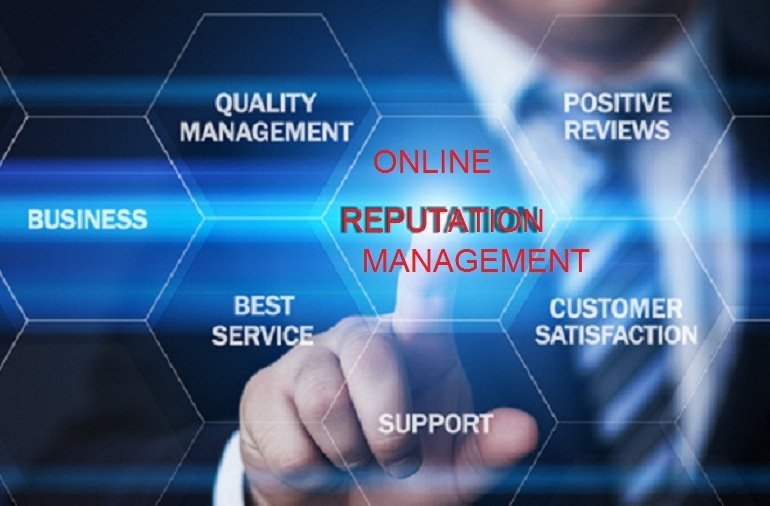
ORM is all about keeping track of and maintaining your brand’s online reputation, ensuring that your company is appropriately portrayed online and that potential consumers have a positive image of who you are and what you do. That’s how important it is, so without further ado, here are the best online reputation management options to consider.
If you are a new business starting out and need a helping hand or a current brand that needs a huge boost, the best advice is to look at the best reputation management companies and find one to help you.
Why is Online Reputation Management Important for Businesses?
The internet was radically different only a few years ago. Companies didn’t communicate with their consumers; instead, they sold (or attempted to sell) to a passive audience. People couldn’t find a compelling means to express themselves, and the general communication environment was quite “top-down.”
The situation has shifted dramatically. Websites are no longer just online brochures. It’s essential to have user-generated content. Regular interactions on social media are also critical to any company’s success.
Consider again if you think you can get away with ignoring reputation management, or if you think you can get away with ignoring people’s voices, opinions, and reviews.
8 Online Reputation Management Options to Consider
It’s a bit redundant to call it “online reputation.” Your reputation on the internet is your reputation. Nothing protects your brand from criticism in the digital age. This is good for freedom of speech, but bad for your business if it has been defamed and attacked.
Here are 8 practical methods to help you keep your reputation in good shape. In the future years, the world of brand reputation will change, but following these basic guidelines can help you preserve your identity.
- Command respect
It’s a bit redundant to call it “online reputation.” Your reputation on the internet is your reputation. Nothing protects your brand from criticism in the digital age. This is good for freedom of speech but bad for your business if it has been defamed and attacked.
Here are 8 practical methods to help you keep your reputation in good shape. In the future years, the world of brand reputation will change, but following these basic guidelines can help you preserve your identity.
- Keep an eye on what others are saying about your company.
In addition to all of the above reasons to keep an eye on your online reputation, social media monitoring may also help you sell more. Many individuals ask inquiries on Twitter and Facebook these days while they consider whether or not to buy from you. Your brand will appear more trustworthy if you demonstrate that you are responsive.
- React as soon as possible and in a polite manner.
If a consumer complains via Facebook, for example, a quick and straightforward “Thanks for bringing this to our attention.” We’re working on it and will get back to you as soon as we can.” is preferable to a delayed response with further information.
- Keep an eye on your Google results.
First impressions matter, and we often rate books based on their covers. If your brand is connected with the phrases “scam” and “rip off,” you should be concerned. Your greatest protection against bad publicity, bad reviews, and misleading reports is a good SEO strategy.
- Take Advice From Your Opponents
Criticism might help you gain a better understanding of your audience and develop a more effective message in the future. The controversial “baby-wearing moms” commercial by Motrin drew a lot of backlashes. It came from people in Motrin’s target demographic who were angered by its advertising content, not from rivals or illegal attackers.
If your brand is receiving valid internet feedback, it may be time to rethink your marketing approach or replies.
- Defend yourself from illegitimate attackers.
The illegal activity must sometimes be confronted. Employees of Domino’s Pizza were sacked and jailed in 2009 after they released nasty footage of themselves playing with food on social media. People that spread misleading information on the internet are another example. It’s possible that if you don’t suit them, they’ll do it again.
- Make a list of all the mistakes you’ve made and what you’ve learned from
In 2005, Sony undoubtedly learned a valuable lesson in reputation management. Copy protection (XCD) was installed on the company’s CDs, resulting in computer weaknesses that malware may exploit. Sony stonewalled criticism rather than admitting its error, and as a result, millions of dollars were wasted in class-action litigation. If you’ve made a mistake, admit it and take steps to correct it.
- If necessary, get assistance.
If your efforts at online reputation management aren’t enough to safeguard or restore your brand’s image, you might seek expert assistance. Working with online reputation management or a web marketing firm may be your only option.
Listening to what your consumers have to say and finding methods to engage with them are the first steps in managing your online reputation. While responding to online criticism and developing an SEO strategy is important, they may not be enough to shield your business against smear campaigns. In such instances, it may be necessary to seek expert assistance.



